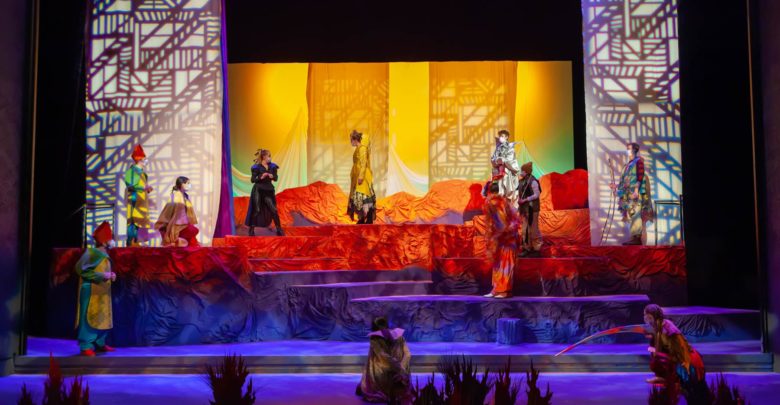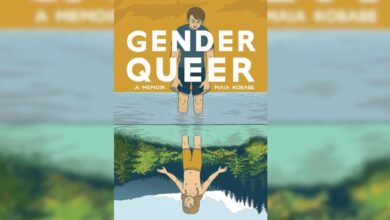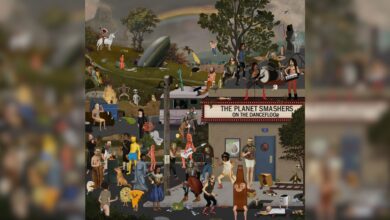‘The Birds’ reflects Indigenous questions about truth and reconciliation
The Birds is masterfully reimagined to reflect modern issues surrounding Indigenous people, reconciliation, and allyship.
 Supplied: Studio E Photography
Supplied: Studio E PhotographyDespite the fact that The Birds is adapted from Greek playwright Aristophanes’s comedy under the same name, the production’s themes surrounding Indigenous reconciliation are anything but humorous.
The Birds is a modern adaptation of Aristophanes’s play, adapted by Yvette Nolan and directed by Reneltta Arluk. It was featured at the annual Congress of the Humanities and Social Sciences. Nolan is an Algonquin playwright, with other work such as Annie Mae’s Movement and The Unplugging under her belt. This adaptation explores themes of Indigenous reconciliation, unjust occupation of land, reclaiming culture, and other pertinent Indigenous issues today.
The production masterfully preserves Aristophanes’ original intent while highlighting Indigenous concerns and questions about reconciliation.
In Aristophanes’s The Birds, the protagonist Pisthetaerus convinces the birds to build a great city between the city and the heavens. By the time the play is over, Pisthetaerus and the birds force the co-operation of the gods.
Nolan’s version of The Birds mirrors many of these moments — though they’re framed differently. In Nolan’s adaptation, the birds are convinced by the two protagonists, Jack (Zachary Strom) and Gulliver (Hannah Wigglesworth), as well as a former human-turned-bird, Hoopoe (Dylan Maguire), to co-operate in building a city. The “gods” are referenced in the play, as the city imagined by Jack is like Pisthetaerus’s — a platform between humans and the gods. However, the gods are not the ones controlled by the birds at the end; the humans listen to dissenting birds and scam.
Does this imply that humans are the birds’ gods? Though it may seem so with only Pisthetaerus’s plot as context, this adaptation of The Birds asserts that the answer is no. The birds are metaphors for Indigenous people — a concept that’s not subtle, and for good reason. Like Aristophanes’s version, the end of the play is a victory for Pisthetaerus and the birds. However, the gods are not involved. Instead, the people being forced away, and the land being restored to its original state is the victory of the production.
Other than the very obvious theme of colonization from Jack and Gulliver, there’s also underlying messages about capitalism and the forceful Westernization of other cultures’ economies. Jack is disgusted with the laws of the cities, whereas Gulliver is naive and hopeful. Despite being disgusted at the way cities are run, Jack constantly makes comments saying he and Gulliver “discovered” the area, and dreams of building walls so high no one else can get into his newly built city.
Gulliver, who is open-minded and hopeful, stays with the birds. He eventually becomes one of them, while Hoopoe is expelled. Jack leaves willingly as he sees the anger of the birds, but the expulsion of Hoopoe leads to another large theme in the play.
Hoopoe is a symbol of violence against Indigenous women. In the second song of the play, Swallow (Sue Goberdhan) sings of her and Nightingale’s (Elizabeth Chamberlain) past. Swallow tells the audience that she and Nightingale were once human; they were turned into birds from grief when a then-human Hoopoe violated Nightingale. After this event, Swallow loses her tongue, and Nightingale is bound to Hoopoe as his wife. Swallow’s forced silence and Nightingale’s unwillingness references Missing and Murdered Indigenous Women. Hoopoe’s expulsion is a sign of strength for those who have suffered by his hand.
My favourite part of the play was the first song. In it, Nightingale is asked to tell a story. She sings one version of the story of Turtle Island. It is delivered in a beautiful way as the cast sings in unison to support her voice, and reminds the audience of the diverse stories of Canada before settlers came.
The end of the play gives the audience a sigh of relief for the birds, but it also raises questions about allyship. Jack is someone who consistently asserts his “discovery” of the birds’ land, and plans to use the birds for his own gain. Though he doesn’t denounce his plans, he still fights the priest, the surveyors, and the lawyer when they come to take the land for the “Dominion.” Jack’s allyship is conditional, and only when it threatens his own livelihood.
The Birds invites the audience to be active in their allyship, and to rethink their relationship with the land they live on.




